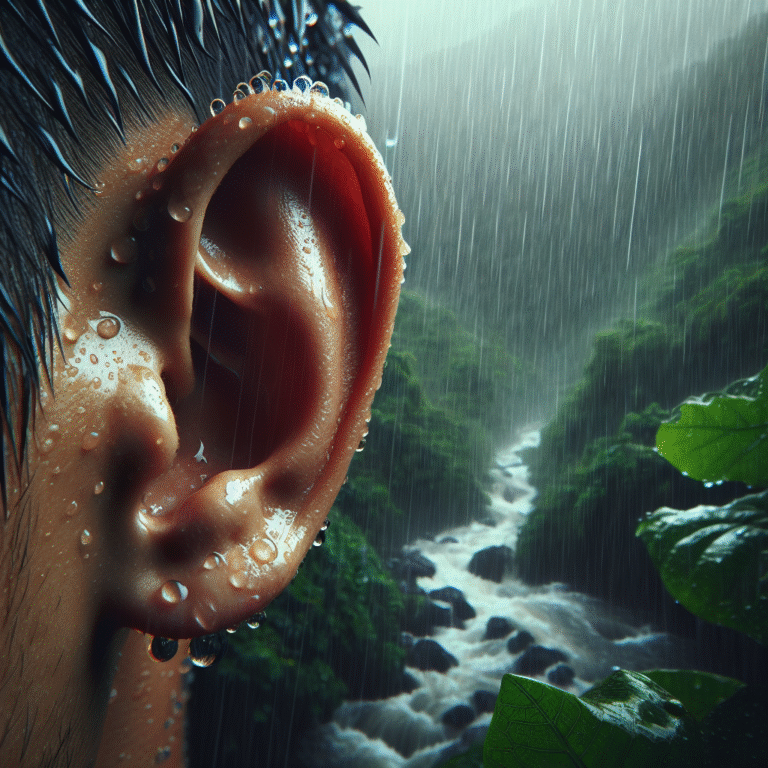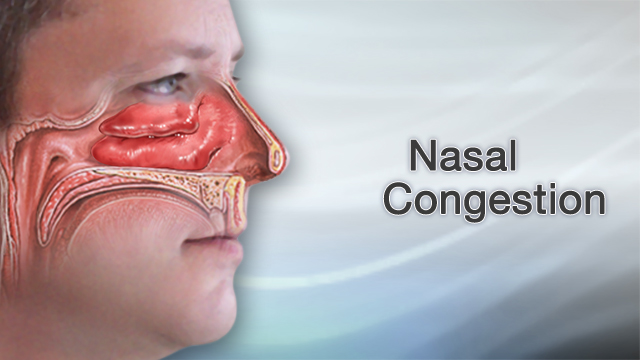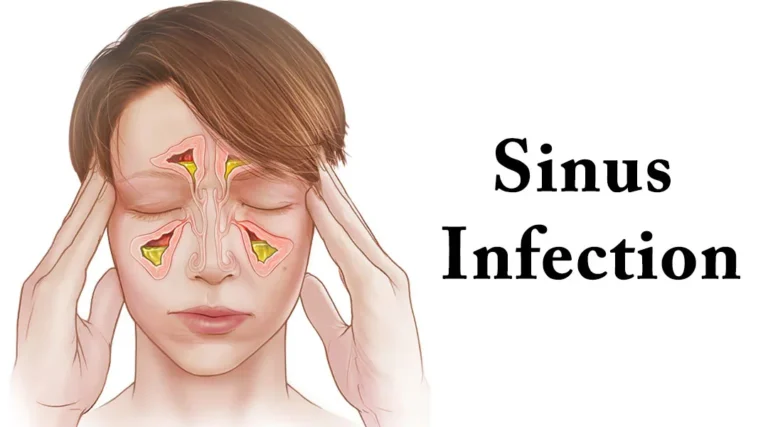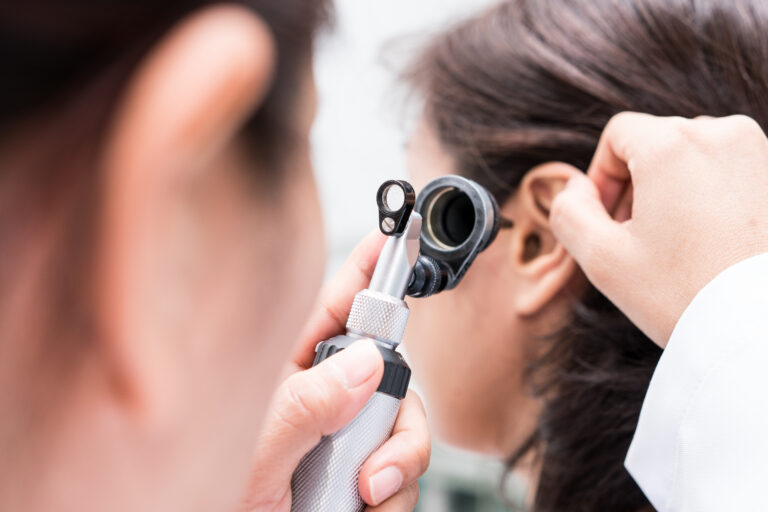
Winter as a time of cheerful scarves, hot tea, and frozen mornings is not without peculiarities for our health – or, more specifically, our ears. While with any other part of the body we ensure that it is properly covered especially by frost or heat also ear is not usually considered. However, cold conditions can interfere with ears in many ways, and this causes such recognisable symptoms of discomfort, infections and in the long-run, ear complications.
Cold may then set in, dry indoor heating, and recurrent cases of colds may literally be fatal to the ears in winter. Among them include; earache, blocked ears and some infections that would otherwise deny the happiness of the season. The outer ear and especially the ear drum is composed of thin tissues which make it very sensitive to change in environmental conditions and this is why it is advisable to be very careful with the ears during the cold season.
Moreover, if they are not taken early in the season or early enough, then winter can aggravate ear infections, lead to impaired hearing, or continuous ear infections. Winter ear care is therefore very crucial especially when exercising or exercising in very cold regions like skiing, or just going to or coming from work. I will let you know all the measures that can be taken to prevent freezing and infections hence you will not be bothered from your winter holidays.
How Winter Affects Your Ears
The cold weather impacts ear health in several ways:
- Reduced Blood Flow: Cold air contracts the small blood vessels of the ears thereby creating a perfect environment for bacterial invasion.
- Increased Risk of Infections: Cold dry air and frequent changes in temperature can cause negative effects upon the delicate ear tissues.
Common Symptoms of Winter-Related Ear Issues
- Pain or discomfort in the ear.
- Ringing in the ears, a humming noise or a sense of fullness.
- Itchiness or irritation in the ear canal.
- Sensitivity to cold air or wind.
Common Winter Ear Infections
Otitis Externa (Swimmer’s Ear)
Although commonly occurring in summer while swimming or using a pool, otitis externa can happen in winter as well. This condition occurs when water is lodged in the ear canal and forms a perfect breeding ground for bacteria or fungus. This is the case during winter because simple activities such as taking showers, putting on tight ear bands can cause moisture build up resulting to infections.
- Rash or inflammation of the ear canal.
- Urine that may be normal in colour or brown, foul-smelling, or thick and cloudy.
- Presence of sweat water seepage in headgear due to rain, snow or sweats.
- Cold, flu or allergies and failure to put on earplugs or ear buds then leaving them in for very long without washing them. This condition arises when moisture is trapped in the ear canal, creating an environment conducive to bacterial or fungal growth. During winter, factors like taking hot showers or wearing tight-fitting ear covers can inadvertently trap moisture, leading to infection.
Symptoms:
- Ear pain or tenderness.
- Redness or swelling in the ear canal.
- Discharge that may be clear or cloudy.
Winter Risk Factors:
- Moisture build up from rain, snow, or sweat trapped in headgear.
- Using earplugs or ear buds for prolonged periods without cleaning.
Otitis Media (Middle Ear Infection)
Otitis media is a common type of ear infection in the winter, which affects children in particular. Acute otitis media – This is a condition brought about by a build up of fluid on the behind the eardrum usually as a result of a flu, cold or sinus infection. When the Eustachian tubes are blocked thus fill with mucous or fluid, this hampers drainage thus providing a good ground for bacteria or viruses hence infection.
- Pulling up of an ear ache or a sensation of having a full ear.
- In severe cases there may be signs such as fever or general body weakness.
- More cases of flu and other illnesses of the upper respiratory system during the particular season.
- Heating systems used indoors that tend to dry the passage ways in the nasal leading to ear sicknesses.
- Wind which blows onto the Eustachian tubes causing irritation due to exposure to cold air, swimming in warmer months, otitis externa can also occur during winter.
This condition arises when moisture is trapped in the ear canal, creating an environment conducive to bacterial or fungal growth. During winter, factors like taking hot showers or wearing tight-fitting ear covers can inadvertently trap moisture, leading to infection.
Symptoms:
- Earache or a feeling of fullness in the ear.
- Temporary hearing loss.
- Fever or general fatigue in severe cases.
Winter Risk Factors:
- Increased colds and upper respiratory infections during the season.
- Indoor heating systems that dry out the nasal passages and affect ear health.
- Exposure to cold air, which can irritate the Eustachian tubes.
Other Potential Issues
- Dry Ear Canal: The dry, heated indoor air can strip natural moisture from the ear canal, causing itchiness and irritation.
- Cold-Induced Ear Pain: Prolonged exposure to cold air can trigger pain or pressure changes in the ears, especially during outdoor activities.
Practical Tips to Protect Your Ears in Winter
1. Keep Your Ears Warm
- Wear ear muffs, scarves, or hats to shield your ears from cold winds.
- Ensure your ears are covered when venturing out in sub-zero temperatures.
2. Avoid Moisture Build up
- Dry your ears thoroughly after bathing or showering to prevent moisture-related infections.
- Use earplugs if participating in winter water sports like ice swimming.
3. Maintain Indoor Humidity
- Use a humidifier to prevent the dry air in heated environments from irritating your ear canal.
- Keep indoor humidity levels between 30% and 50%.
4. Stay Hydrated
- Drink plenty of water to maintain healthy mucus membranes in your ears and sinuses, which act as a natural barrier against infections.
5. Don’t Ignore Cold Symptoms
- Address colds and sinus infections promptly, as they can easily lead to ear complications.
- Use saline sprays to keep nasal passages clear and reduce pressure on your ears.
Preventing Ear Pain During Temperature Changes
Rapid temperature changes, such as moving from a cold outdoor environment to a warm indoor setting, can cause ear pressure and pain. To minimize discomfort:
Wear protective gear during winter sports like skiing or snowboarding, which can cause wind-induced ear pain.
Avoid exposure to cold air immediately after a warm bath or shower.

When to Seek Medical Attention
It’s important to recognize the signs of a serious ear infection and seek professional help when needed:
- Persistent or severe ear pain.
- Discharge from the ear.
- Fever or signs of a systemic infection.
- Recurring ear issues during the winter season.
Consulting an ENT specialist can ensure proper diagnosis and treatment, preventing further complications.
Lifestyle Tips for Healthy Ears
- Regular Ear Cleaning: Clean your ears safely without using cotton swabs, which can push earwax deeper or cause injury.
- Boost Your Immunity: Incorporate vitamin-rich foods into your diet to strengthen your body’s defences against infections.
- Limit Noise Exposure: Avoid loud noises during indoor winter gatherings, which can strain your hearing.
Conclusion
Taking care of your ears especially during winter can be easy exercise if you understand the importance of doing it. Such measures as washing the ears, covering the ears during cold weather, treating the cold in its embryonic stage are commendable and should be followed to the letter to avoid ear infections. Ears are fragile and very important for everyday functioning, so they need to be safeguarded from seasonal conditions.
Following these tips, one will avoid the nuisance of common winter ear problems and go ahead and enjoy the season all through. If you have had multiple ear problems in the past or if you have pain that doesn’t go away, or hearing problems, then please seek further assistance.
Seeking advice from an ENT specialist may help you get personalised recommendations which you need to ensure a healthy ear. Do not think that you need all of that now and that you will handle it later; maybe it will result in even more significant issues. Your ears only need the best care and attention from you regardless of what you hear from them about the changing of seasons. Be warm, healthy and pay attention to the sounds you hear.
Read about Could Your Child’s Speech Delay Be a Hidden ENT Issue?







